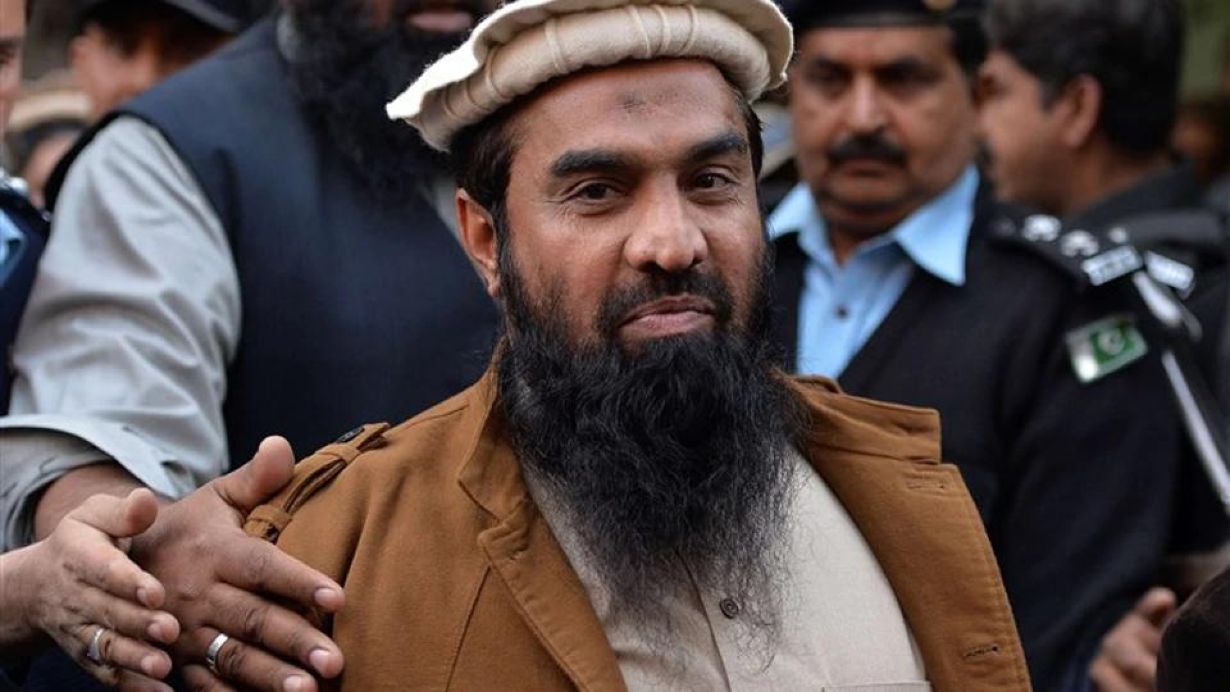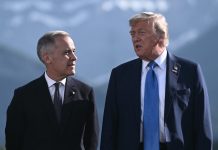At last, China had to yield to world pressure and lift its so-called technical objections to the proposal of designating the main culprit of the Mumbai carnage, Zakiur Rehman Lakhvi (Makki), a Pakistani national, as an international terrorist.
The UN has decided by paragraph 13 of 02 Resolution 1822 (2008) and subsequent resolutions the ISIL (Daesh) and Al Qaeda Sanctions Committee made accessible a narrative summary of reasons for the listing of individuals, groups, undertakings, and entities included in the ISIL (Daesh) and Al Qaeda sanctions list.
Lakhvi’s story is bizarre in the annals of the contemporary history of terrorism. Here is what the press release of the UN Human Rights Council has said about why Lakhvi is designated.
Zakiur Rehman Lakhvi was listed on December 10, 2008, under paragraphs 1 and 2 of the resolution mentioned above as being associated with Lashkar-e-Tayyaba and Al-Qaeda for participating in the financing, planning, facilitating, preparing, or perpetrating of acts of activities in conjunction with, under the name of, on behalf or in support of “both entities,” is stated in the UNHRC formal press release.
Lakhvi is the chief of operations and military commander of Lashkar-e-Tayyba (LeT). In this capacity, Lakhvi has directed LeT operations, including in Chechnya Republic in Russian Federation, Bosnia and Herzegovina, Iraq, and South East Asia.
In 2003, Lakhvi instructed LeT operators to conduct an attack in densely populated areas.
In the same year, he directed a LeT operative to travel to Iraq to assess the situation. In 2004, Lakhvi sent operatives and funds to mount an attack on the forces of the United States of America in Iraq. In 2006, Lakhvi instructed LeT associate to train operatives for suicide bombing.
In past years Lakhvi has played an essential role in LeT’s fundraising activities, receiving Pakistani donations from Al-Qaeda affiliates on behalf of LeT. He is also running a terrorist training camp in Afghanistan.

China Defends Pakistani Terrorists
China, one of the members of the Security Council, is notorious for stonewalling the proposals of aggrieved member states demanding that the Security Council designate some identified terrorists.
In particular, when India or the US proposes designating a particular terrorist organization based in Pakistan or a person who is a Pakistani national or an activist of a banned terrorist organization, and there is satisfactory evidence against him, China vetoes it. This is not only misusing the power of veto but is indirect encouragement to terrorism also.
In the case of Masood Azhar, the top leader of the terrorist organization Jaish-e-Muhammad, China adopted the same policy. When he was to be designated as a global terrorist, China repeatedly put technical holds on UN resolutions.
This came a week before China would virtually host the 14th BRICS summit on June 23. As a cooperation mechanism, the Chinese Foreign Ministry said that BRICS countries are important for emerging markets and developing countries and a platform for South-South cooperation.
Talking about concrete actions against terrorists, Chinese Foreign Ministry spokesperson Wang Web at a regular press briefing in Beijing, said, “I would like to say that China opposes terrorism in all its manifestation. The actions we take in the 1267 ISIL and Al Qaeda sanctions committee of the UN Security Council always abide by relevant procedures and rules. China will continue to work with a constructive and responsible attitude.”
Experts who are aware of the functioning of the United Nations Security Council said China is misusing its position in the UNSC and abdicating its international responsibility.
However, the Chinese spokesperson refused to reply to questions about continuing China’s double standards regarding global counter-terrorism efforts. In practice, China is blocking the listing of known terrorists against whom there exists overwhelming evidence, as in the case of Masood Azhar and now Makki.
Last week, there was a meeting between BRICS National Security Advisors, in which India’s NSA Ajit Doval highlighted the need to bolster cooperation against terrorism without any reservation. Today, China has put a hold on the listing of a terrorist.
In June 2022, China blocked a joint proposal from the US and India to include Makki on the UNSC’s list of global terrorists. The combined request to add Makki to the UNSC’s 1267 list of terrorists associated with al Qaeda and ISIL was “technically held” by Beijing at the last minute. India criticized Beijing’s action, calling it “extremely unfortunate.”
However, this time with India getting 14 out of 15 members of the UN Security Council on its side, China on Monday was forced to give up the “technical” hold on the designation of Lahore-based LeT’s deputy chief Abdul Rehman Makki as a global terrorist by the 1267 UN Sanctions committee.
China Exposed
United Nations Security Council has designated Abdul Rehman Makki, the brother-in-law of 26/11 mastermind and Lashkar-e-Taiba (LeT) chief Hafiz Saeed who has been given a haven in Pakistan, as a global terrorist under its ISIL (Da’esh) and Al-Qaida Sanctions Committee.
India’s perseverance has primarily been responsible for stepping up international pressure to designate the Pakistan-based, LeT deputy chief Makki as a global terrorist.
“On January 16, 2023, the Security Council Committee under resolutions 1267 (1999), 1989 (2011), and 2253 (2015) concerning ISIL (Da’esh), Al-Qaida, and associated individuals, groups, undertakings, and entities approved the addition of the entry specified below to its ISIL (Da’esh) and Al-Qaida Sanctions List of individuals and entities subject to the assets freeze, travel ban and arms embargo set out in paragraph 1 of Security Council resolution 2610 (2021) and adopted under Chapter VII of the Charter of the United Nations,” the UN said in a statement on Monday.
Regarding counter-terrorism, Pakistan has made limited progress on the most challenging aspects of its 2015 National Action Plan, specifically in its pledge to dismantle all terrorist organizations without delay or discrimination, said the US State Department in its 2020 Country Reports on Terrorism.
China should reflect on its response that signals double standards in combating terrorism. Protecting well-known terrorists from sanctioning in this manner will only undermine their credibility and risk exposing them even more to the growing threat of terrorism.
The history of China misusing its veto powers to defend or protect known individuals and their organizations with a record of active engagement with the terrorists vindicates India’s long-standing demand to reform the UN, which was created in 1945.
Many countries have joined their voice with the voice of India. Today, the world understands that the UN has been politicized to the extent that no aggrieved country expects the UN to extend its help unless political support is mounted in its favor.
- KN Pandita (Padma Shri) is the former Director of the Centre of Central Asian Studies at Kashmir University. Views expressed here are of the author’s.
- Mail EurAsian Times at etdesk(at)eurasiantimes.com
- Follow EurAsian Times on Google News




